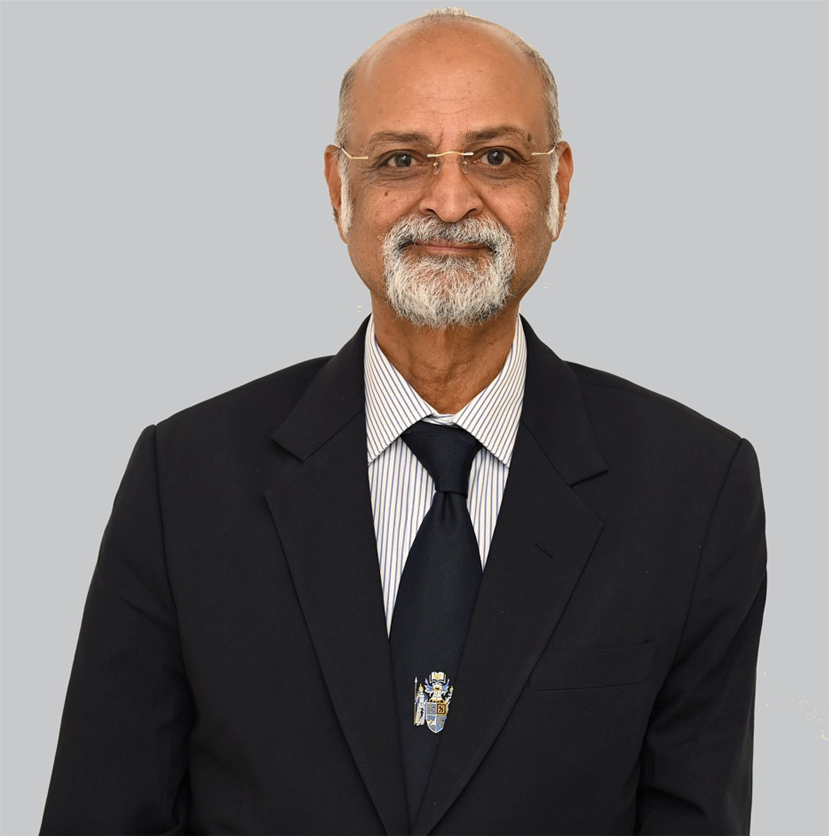Latest Advancement in epilepsy treatment
Advancement in epilepsy treatment Dr. S. Raghavendra, Consultant Neurologist and Epileptologist at Manipal Hospital Millers Road, Bengaluru. Epilepsy is a brain disorder characterized by occurrence of recurrent unprovoked seizures. These seizures are due to abnormal electrical activity

Advancement in epilepsy treatment
Dr. S. Raghavendra, Consultant Neurologist and Epileptologist at Manipal Hospital Millers Road, Bengaluru.
Epilepsy is a brain disorder characterized by occurrence of recurrent unprovoked seizures. These seizures are due to abnormal electrical activity in the brain manifesting in various forms depending on the area of the brain involved. Epilepsy is associated with psychological and social consequences. In India approximately 10 million people are living with epilepsy.
Appropriate diagnosis and treatment can reduce the frequency of seizure episodes, prevent complications and reduce the risk of sudden unexplained deaths in patients with epilepsy. Over the last few decades, the management of epilepsy has made tremendous progress in terms of both medical and surgical management.
Epilepsy management needs a multidisciplinary team approach that involves Epileptologists, Neurosurgeons, Neuroradiologists, Electrophysiologists, Psychologist, Psychiatrist and EEG Technologists. There are many specialized comprehensive epilepsy centers that aim to providing the best care with advanced imaging technologies
Newer anti-epileptic drugs
There are more than 30 drugs available as anti-epileptic agents. Many of the newer drugs have a better safety profile when compared to the older drugs. Targeted therapy is often practiced for treatment of epilepsies related to genetic mutations. Availability of intranasal or buccal formulations of medications with a quick onset of action can also be used in emergency situations for treatment of recurrent seizures, prolonged seizures or status epilepticus.
Technological advances:
Advanced neuro-imaging techniques:
MRI is commonly used for the diagnosis of lesional epilepsy. With the advent and availability of 3T MRI, detection of lesions causing epilepsy has become easier. However, some patients may not show any abnormality on routine MRI. These patients may require advanced imaging techniques such as PET scan, SPECT scan, MEG etc. for better diagnostic imaging. In addition, functional MRI can help delineate the eloquent cortex and its proximity to the epileptic lesion to anticipate and avoid surgical complications. These advanced imaging techniques are particularly useful in patients requiring surgical management for epilepsy.
Electroencephalography (EEG):
EEG is one of the most important tests for determining the type of epilepsy and helps in differentiating generalized from focal epilepsy. In cases with focal epilepsy, seizures can be localized from one area of the brain based on the epileptic discharges and electrographic seizure onset. Advanced EEG techniques may be useful in certain patients who can benefit from surgery for further precise localization. In such cases electrodes can be stereotactically placed in the brain either robotically or using a frame. In addition, it facilitates in functional mapping with stimulation studies. RF thermocoagulation can be used in a subset of patients where seizures have a very focal onset.
Surgical advances:
The availability of sonowand and intraoperative MRI has further eased localize the lesion after craniotomy. With newer anesthetic agents, it is now possible to do awake craniotomies and on-table functional mapping specially when operating close to eloquent cortex/ language area. Procedures like Vagus nerve stimulation, responsive neurostimulation and deep brain stimulation are among the newer treatment strategies to control difficult to treat epilepsy
Advancement in epilepsy treatment
Dr. S. Raghavendra, Consultant Neurologist and Epileptologist at Manipal Hospital Millers Road, Bengaluru.
Epilepsy is a brain disorder characterized by occurrence of recurrent unprovoked seizures. These seizures are due to abnormal electrical activity in the brain manifesting in various forms depending on the area of the brain involved. Epilepsy is associated with psychological and social consequences. In India approximately 10 million people are living with epilepsy.
Appropriate diagnosis and treatment can reduce the frequency of seizure episodes, prevent complications and reduce the risk of sudden unexplained deaths in patients with epilepsy. Over the last few decades, the management of epilepsy has made tremendous progress in terms of both medical and surgical management.
Epilepsy management needs a multidisciplinary team approach that involves Epileptologists, Neurosurgeons, Neuroradiologists, Electrophysiologists, Psychologist, Psychiatrist and EEG Technologists. There are many specialized comprehensive epilepsy centers that aim to providing the best care with advanced imaging technologies
Newer anti-epileptic drugs
There are more than 30 drugs available as anti-epileptic agents. Many of the newer drugs have a better safety profile when compared to the older drugs. Targeted therapy is often practiced for treatment of epilepsies related to genetic mutations. Availability of intranasal or buccal formulations of medications with a quick onset of action can also be used in emergency situations for treatment of recurrent seizures, prolonged seizures or status epilepticus.
Technological advances:
Advanced neuro-imaging techniques:
MRI is commonly used for the diagnosis of lesional epilepsy. With the advent and availability of 3T MRI, detection of lesions causing epilepsy has become easier. However, some patients may not show any abnormality on routine MRI. These patients may require advanced imaging techniques such as PET scan, SPECT scan, MEG etc. for better diagnostic imaging. In addition, functional MRI can help delineate the eloquent cortex and its proximity to the epileptic lesion to anticipate and avoid surgical complications. These advanced imaging techniques are particularly useful in patients requiring surgical management for epilepsy.
Electroencephalography (EEG):
EEG is one of the most important tests for determining the type of epilepsy and helps in differentiating generalized from focal epilepsy. In cases with focal epilepsy, seizures can be localized from one area of the brain based on the epileptic discharges and electrographic seizure onset. Advanced EEG techniques may be useful in certain patients who can benefit from surgery for further precise localization. In such cases electrodes can be stereotactically placed in the brain either robotically or using a frame. In addition, it facilitates in functional mapping with stimulation studies. RF thermocoagulation can be used in a subset of patients where seizures have a very focal onset.
Surgical advances:
The availability of sonowand and intraoperative MRI has further eased localize the lesion after craniotomy. With newer anesthetic agents, it is now possible to do awake craniotomies and on-table functional mapping specially when operating close to eloquent cortex/ language area. Procedures like Vagus nerve stimulation, responsive neurostimulation and deep brain stimulation are among the newer treatment strategies to control difficult to treat epilepsy






